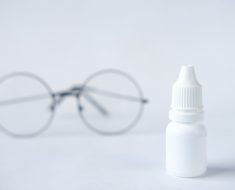
There is no better time than the start of the New Year to adopt some wellness resolutions. The first thing you can start doing today to boost your immunity and improve your wellness in 2023? Save money and ditch the multivitamins.
More than half of U.S. adults take multivitamins to the tune of $50 billion annually in sales, despite lack of research-based evidence to support immune-boosting vitamins for most people. In 2023, spend your well-earned money on regular, healthy food instead.
Remember that we can safely obtain key immune-boosting vitamins like zinc, vitamin C, and vitamin D from healthy daily sun exposure and a well-balanced diet of fatty fish, lean meat, vegetables and fruit. Magnesium—important for blood pressure and glucose control—can be obtained from dark, leafy vegetables and almonds. Omega-3 fatty acids can also be obtained from fatty fish like mackerel, salmon and cod liver oil.
Be more physically active in 2023
A massive new study of almost 200,000 Southern California Kaiser Permanente patients and their exercise habits found that those with less than 10 minutes of physical activity per week were 91% more likely to be hospitalized with COVID-19 and 291% more like to die from it than those who exercised 150 minutes or more per week.
Put another way—those who exercised at least 30 minutes most days of the week had a four times higher chance of surviving COVID-19 than those who were inactive.
This study buttresses existing studies that indicate moderate exercise is immune-boosting.
Again, the key is to start slow. If you have multiple medical problems, talk to your primary care doctor or cardiologist about how to safely start an exercise program. If you are otherwise healthy, ask friends who are regular gymgoers how to start a program or speak to the trainer at your local gym.
Even a 10-minute post-dinner walk can improve your blood sugar control. In addition, a recent meta-analysis of 10 studies found that including any amount of resistance training reduced the risk of all-cause mortality by 15%.
Importance of early morning sun
Unfortunately, for most of us, the first light to hit our eyeballs in the morning is the screen glare from our phones or laptops.
Getting that early morning sunlight is key for setting our circadian rhythm for the day and is also crucial for restful sleep later that night, mood and energy. Never look directly at the sun, but try to get that sunlight on your eyes minus the sunglasses. If it’s too cold where you live to go outside, stand near the brightest window in your house. Aim for 15 to 30 minutes if possible within your first hour of waking up.
Take a cold shower—after your hot one
Equally important as that early morning sun is to start introducing cold exposure into your daily routine. Multiple research studies show that cold exposure is a “good stressor” that floods our brains and bodies with adrenaline and dopamine, increasing our energy and focus and elevating our mood.
Despite their growing popularity, few people have the space at home or the funds to set up a cold plunge tub. And regular access to wellness spas with a cold plunge pool is expensive.
But, it turns out, all you need is a shower:
- Just as with any exercise routine, start slow. At the end of your regular warm/hot shower, slowly lower the temperature while prioritizing safety.
- To start, aim for a temperature that makes you think “Wow, that’s cold!” but where you can keep going for a full minute.
- You’ll notice the cold water cause you to start taking deeper and slower breaths. This is expected and the result we want. Instead of fighting our body’s natural reflex to breathe like this, lean into it and focus on quality breathing.
- Over time, aim for progressively colder water and a longer time. One to three minutes daily is ideal.
Practice mindfulness before bed
Now that the post-holiday stress has subsided, consider adding 10 minutes of nightly meditation to your wind-down regimen before bed.
New research showed that both mindfulness and the anti-anxiety medication Lexapro reduced anxiety by 30% at the end of the 24-week study.
Anxiety can affect up to 40% of women and 25% of men during their lifetimes.
Stay up to date on vaccines in the winter
And last but certainly not least, exciting new research has finally answered part of the question of why we are more likely to get sick in the colder months of the year. Researchers found out that temperature of our nasal cavity drops 9°F in colder conditions, increasing our risk of infection in the winter.
As such, it remains important to keep up to date with available vaccines, including against COVID-19, influenza and pneumonia (for all adults 65 years and older). We will hopefully have the rollout of the first vaccine against RSV before next winter.
2023 USA Today. Distributed by Tribune Content Agency, LLC.
Source: Read Full Article





